Could battery lawsuits, material shortages delay some EVs?Could battery lawsuits, material shortages delay some EVs?
Shortages of raw materials for batteries, as well as a new lawsuit among battery suppliers, may lead to delays in some upcoming electric cars.
On Thursday, according to Reuters, Tesla’s global supply manager for battery metals, Sarah Maryssael, told a conference of mining executives and lawmakers in Washington that the company expects global shortages of nickel, copper, and other minerals needed to produce batteries for electric cars, because new investments in mining the materials haven’t come quickly enough.
Compounding potential supply chain shortages for electric automakers, LG Chem sued its cross-town South Korean rival, SK Innovation, at the US International Trade Commission last Tuesday, alleging that SKI misappropriated LG Chem trade secrets by hiring 77 of its former employees as it ramped up its own battery production at new factories in the U.S. state of Georgia and in Hungary.
READ THIS: Report: Battery shortages lead to Audi E-tron production delays
Those factories are intended to supply Volkswagen’s new electric cars coming to the U.S., as well as some in Europe.
In a statement announcing the lawsuit, LG claimed that “SK Innovation has taken LG Chem’s highly skilled engineers and other critical business services staff, thereby gaining access to LG Chem’s highly valued lithium ion battery trade secrets.” It further claims that SKI is using the technology to produce “knockoff” LG Chem batteries, including those in the new Kia Niro EV, with its rated range of 239 miles.
The lawsuit seeks to stop imports of SK Innovation batteries into the US. That could include SK Innovation batteries already installed in electric cars imported to the US as well, such as the Niro EV. There has not yet been any such ruling nor injunction. SKI also supplies Volkswagen, Daimler, and Hyundai, though it isn’t the exclusive cell supplier to those companies as it is to Kia.
2019 Kia Niro EV first drive – Santa Cruz, CA – February 2019
Still, the lawsuit makes clear that the competition is getting extremely tight for electric car batteries, and apparently the materials to make them, and that such competition could delay some of the many new EV models expected to arrive soon.
Analysts say that battery production for electric cars has been growing by 20 percent a year recently, but that can’t keep pace with an electric car market that doubled last year and is expected to encompass almost 20 new models by the end of 2019.
DON’T MISS: Hyundai and Kia EVs may just avoid “compliance car” stigma, but is that enough?
Even Tesla, which has its own giant battery factory with an exclusive partner, Panasonic (the largest lithium-ion battery maker in the world), is apparently struggling. Its sales of electric cars increased by more than 150 percent last year as it ramped up production of its Model 3. Yet CEO Elon Musk tweeted recently that battery supplies from Panasonic had been a constraint on Model 3 production since last July.
Now the company is looking for new battery partners to supply the new car factory it is building in China.
2019 Audi e-tron battery pack
Employees at Audi’s Brussels factory that builds its new E-tron electric SUV say shifts have been cut back following battery delays and threatened price increases from supplier LG Chem. Such production delays will inevitably slow the proliferation of clean electric cars.
In previous conversations with Green Car Reports about why so many of its plug-in cars are available only in select states and in small numbers, U.S. executives for Hyundai and Kia put the problem down to supply constraints for the cars from their home country, and an effort to focus sales in Europe, where emissions laws are tighter and profit margins generally higher.
READ MORE: Battery shortage interrupts Hyundai Ioniq Electric sales
Daimler is building a new factory in Alabama to build battery packs and electric cars, which is supposed to start production next year and could also use cells from SKI’s Georgia factory or elsewhere.
If automakers can’t get battery cells and battery makers can’t get the minerals they need to make them, the downward trend in the price of lithium batteries could be interrupted. That could delay not only the rollout of individual new models but also push back the time when electric vehicles reach cost parity with internal-combustion ones.
Anybody have an active mining claim to spare?
View original article at: “https://www.greencarreports.com//news/1122906_could-battery-lawsuits-material-shortages-delay-some-evs”
Related posts


Electric SUVs: Top 6 Models for Family Trips











